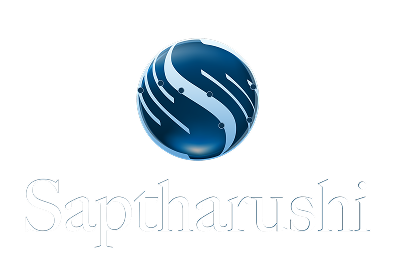Frequently Asked Questions
What is a data clean room (DCR)?
A data clean room is a secure collaboration environment that allows multiple participants to leverage data assets for mutually agreed-upon use cases while ensuring strict data access limitations.
Why do businesses need a data clean room?
Data Clean Rooms help organizations address key challenges in data sharing, including:
- Consumer Trust – Ensures privacy while enabling actionable insights.
- Loss of Scale in Addressability – Adapts to a privacy-first world without diminishing audience reach.
- Risk to Business & Reputation – Reduces exposure to regulatory violations or misuses of data.
What are the key benefits of a data clean room?
- Secure data collaboration between owners and partners.
- Compliant data monetization while protecting consumer privacy.
- Audience enrichment & sharper targeting through privacy-preserving data operations.
How does Saptharushi DCR ensure privacy compliance?
Saptharushi’s multi-party federated clean room:
- Implements SHA-256 hashing for Personally Identifiable Information (PII).
- Enforces differential privacy controls with configurable security settings.
- Uses distributed queries to prevent direct data exposure.
- Records all transactions immutably on blockchain for transparency.
Does Saptharushi DCR meet GDPR and HIPAA guidelines?
Yes, Saptharushi DCR is GDPR-compliant, adhering to Section 30 (data provenance requirements), and also meets HIPAA guidelines for secure data processing in healthcare use cases.
Is hashed PII data considered as PII?
No, hashed PII data prevents reidentification and is classified as non-PII under regulations like CCPA.
How does differential privacy work within Saptharushi DCR?
Users can incorporate three levels of noise/distortion (High, Medium, Low), to the queries ensuring varying levels of non-traceability to the consumer data while extracting valuable insights from the datasets.
How is confidentiality and integrity managed?
- SHA-256 hashing prevents unauthorized data access.
- Federated queries eliminate direct exposure of raw data.
- Blockchain ledger maintains immutable transaction records.
- Merkle proofs ensure data provenance and integrity checks.
Where is the data stored in Saptharushi DCR?
Data remains fully under control of the data owner, stored in an off-chain database within their private cloud environment.
Does data ever leave the data owner's native cloud?
No, at no point does PII data leave the owner’s infrastructure—ensuring security and compliance.
Who has control over the collaborated data?
The data owner retains complete control over their data within the Private Configuration (PQS) setup.
Does Saptharushi store any data?
No, Saptharushi acts only as a technology provider and does not store any participant data.
What is the core technology used in Saptharushi DCR?
Saptharushi DCR combines blockchain-based transparency with federated data processing, ensuring privacy while enabling multi-party collaboration.
What is the architecture of Saptharushi DCR?
- Client Agent – A Private Querying Server (PQS) – Houses hashed first-party data with consent strings, a provenance node and chosen ETL pipelines, fully controlled by the data owner.
- Federated Agent – A Federated Querying Server (FQS) – Offers various analytical applications through querying multiple PQS instances enabling audience discovery, engagement and attribution.
How does federated configuration (FQS) work?
FQS allows multiple participants to collaborate in a privacy-first manner, enabling secure matching without raw data exchange.
What role does blockchain play in Saptharushi DCR?
Blockchain is used to:
- Maintain immutable records of data operations.
- Validate audience matching queries via cryptographic proofs.
- Ensure compliance with data regulations by providing a transparent audit trail.
What prerequisites are required for data collaboration in Saptharushi DCR?
- PII data must be hashed before collaboration.
- Private Configuration (PQS) must be hosted in the data owner’s cloud.
- A mutually agreed identifier must be selected.
Who owns the Federated Configuration (FQS)?
The Federation collectively owns the FQS node, ensuring no single entity has undue control.
Can new participants be added to a federation?
Yes, upon approval from existing federation members, new collaborators can be integrated.
Does Saptharushi have access to the data?
No, Saptharushi never has direct access to any form of participant data.
Does the entire data column from PQS go to FQS during activity?
No, only hashed identifiers meeting specific query criteria are transferred for matching operations.
How does audience matching work in Saptharushi DCR?
Matching occurs through federated queries, ensuring privacy-preserving computation across multiple datasets
Can predictive models be used in a clean room?
Yes, predictive models can be hosted in the federated configuration or external systems, with audience matching seed data accessible via APIs.
Is Saptharushi DCR ready for the world of Artificial Intelligence?
Yes. The Private Query Server is designed to integrate Model Context Protocol that helps connect to Agentic Applications on the Federated Layer where predictive models can be built.
What happens in case of a data breach?
- All affected parties are immediately notified.
- A mitigation plan is executed, including forensic analysis.
- The party responsible may be held liable for legal and regulatory costs.
How does Saptharushi DCR create trust and transparency?
- Blockchain-based provenance tracking ensures auditability.
- Differential privacy prevents reidentification risks.
- Multi-factor authentication & role-based access control safeguard data handling.
Is Saptharushi DCR a cloud-based solution?
Yes, it is cloud-neutral, supporting AWS, GCP, and Azure. And On-Premise data sets as well.
How long does it take to configure Saptharushi DCR?
Standard deployment is completed within one business day.
What kind of resources are required for implementation?
- Cloud-specialized DevOps engineers for setup.
- Data scientists for advanced analytics use cases.
Will data participants have access to each other’s data?
No, direct access to raw data is not permitted—ensuring compliance and trust.
Will Saptharushi share query activity logs?
Yes, a full provenance trail of access and query activity is available to all participants.
How does Saptharushi DCR help monetize data securely?
By enabling:
- Privacy-compliant audience activation.
- Secure data collaborations with federated access.
- Monetization of insights via tokenized data exchange.
What are the different products and solutions available?
Saptharushi DCR supports:
- Audience Identity Resolution
- Profile Enrichment
- Insights & Analytics
- Audience Attribution & Measurement
- Marketplace Integration
